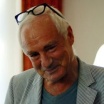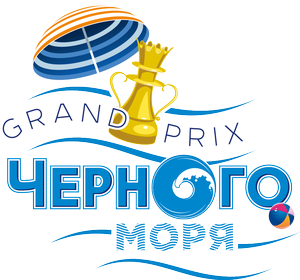Person of day - 18 MAY 2024
GENNA SOSONKO

“I was taught to play chess by my mother. In the centre of a room, opposite a Dutch furnace, stood the lunch table, covered with a faded cloth. Sometimes, in the evening after dinner, a board was placed on it and we would play chess orcheckers. I remember this board vividly: it was faded in many areas, especially on g2. A psychoanalyst would easily link this to my obsession with fianchetting the king’s bishop for my entire professional career. Mother always opened the match with two steps forward of the central pawns. Naturally, I followed suit. I believe this explains my love for a spacious and central style which I retain to this day. We didn’t have chess pieces; our mother would write the names of them of pieces of paper. Once she was seen doing this by Vladimir, her brother, who bought her a chess set. The head of one of the white knights soon fell off and henceforth it was put on its side on the board. Another one of mother’s brothers, Adolf, died in early 1941. It wasn’t easy for him during the war with a name like that,” wrote in his autobiography Genna Sosonko, a grandmaster, author and writer of wonderful essays on chess and chess players.
Genna was born in Troitsk, Chelyabinsk region, and learned to play chess at the age of 10 in Leningrad, where the family returned after the war. He trained in the Pioneers’ Palace, where he was mentored by Vladimir Zak, Vladimir Kirillov, Vasily Byvshev and Alexander Cherepov. Later on, he was taught by Semen Furman in the Chigorin Chess Club.
“After graduating from school, I enrolled in the geographical faculty of the University. Studying there was not burdensome and I had lots of time left for chess. I concentrated on economic geography of capitalist countries. As the chess Encyclopaedia that was published in Britain notes, I was already “preparing myself for a future life in the West.”
Although I was a master in the Soviet Union, I played rarely because I concentrated on training others. For a while, I was helping Tal and in the last year before my emigration- Korchnoi. My decision to leave the country angered the authorities. In a wall in the lobby of Chigorin’s Club, there were two notices that were left hanging after I left. The first one showed the Leningrad team and its trainer, “Master G. Sosonko”. The second one was a directive from the Sports Committee that disqualified me for betraying the Motherland. They happily lived side by side before someone thought of removing the first.”
Gennadi Sosonko emigrated from the USSR in 1972 and settled in the Netherlands. “For brevity’s sake, I shortened my name and added an “n” to make it stronger…Gena who lived in Russia and Genna who lived in the West carry the same surname, but in many ways they are very different people.”
In 1974, G. Sosonko became an international master, in 1976 a grandmaster. He played for the Netherlands from 1974. After 11 Olympiads, he had a wonderful result: +28-4=64. In the 1990s and 2000s, he was the Dutch team’s captain.
Genna Sosonko is the two-time champion of the Netherlands (in 1973 and 1978), a two-time winner of the tournament in Wijk aan Zee (in 1978 and 1981) and winner of tournaments in Barcelona and Lugano in 1976, Nijmegen in 1978 and Polanica Zdroj in 1993 and he is a price-winner in Tilburg, New York, Bad Lauterberg, San Paulo, London and Reykjavik. He played in two inter-zonal tournaments. In 1975, he defeated Max Euwe, a former world champion, 1.5:0.5.
From 1975 to 1982, Sosonko was one of the top 20 players in the world. His highest rating came in January 1981- 2595. He made a significant contribution to opening theories, especially to his favourite Catalan.
In 2004, he stopped competing to focus on journalism and literature. Genna Sosonko is the author of wonderful recollections that were published in several languages. In Russia, they were translated as “I Knew Capablanca”, “My Testimony”, “Dialogue with Chess Nostradamus”, “Back Then” and “Pegas’ Blow”. In the last few years, Genna Sosonko has often worked as a commentator on competitions of the world’s leading grandmasters, describing their battles in English, Dutch and Russian.























